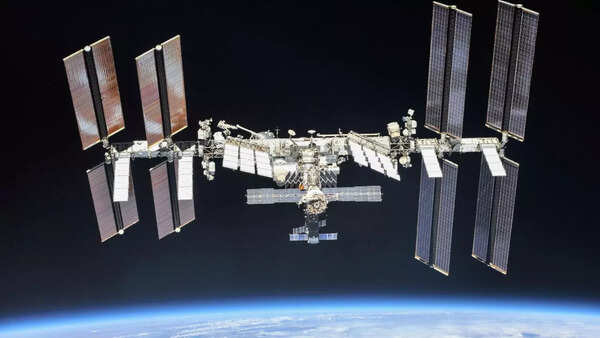Elon Musk, CEO of SpaceX, has renewed his call for the retirement of the International Space Station (ISS), advocating for a shift in focus toward Mars exploration. This statement comes after President Donald Trump's tax bill allocated $1.25 billion to the ISS.
On July 3, 2025, Musk reposted a tweet highlighting the space-related allocations within the tax bill, including the substantial funding for the ISS. He commented, "It’s time to retire the Space Station and focus on Mars." This remark immediately stirred debate, pitting advocates of forward-looking space exploration against those who champion the ISS's scientific and collaborative significance. The bill also earmarks $325 million for a safe deorbit process by 2030, indicating the station's eventual decommissioning.
Musk has been a vocal critic of the ISS, arguing that it represents an aging and costly infrastructure that no longer justifies its expense. He contends that the station's limited capabilities, coupled with escalating maintenance demands, outweigh its scientific contributions. With many modules exceeding two decades of service, Musk believes that continued investment in the ISS diverts resources from more ambitious endeavors, such as crewed missions to Mars. He posits that Mars colonization is not merely a lofty ambition but a crucial step for the long-term survival of humanity, warranting dedicated funding.

NASA acknowledges the finite lifespan of the ISS, with several vital systems nearing the end of their operational capacity. To address this, NASA awarded SpaceX an $843 million contract to develop a U.S. Deorbit Vehicle. This vehicle will oversee the ISS's controlled descent back to Earth around 2030. The tax bill's $325 million allocation for deorbit operations further solidifies this timeline. While Musk supports this transition, he suggests accelerating the process to free up resources for next-generation missions.
Musk's remarks elicited diverse reactions. Proponents argue that his emphasis on Mars is both visionary and pragmatic, particularly given the rapid advancements in private space technology. They maintain that the ISS has provided substantial value and that the time has come to invest in the next chapter of space exploration. Conversely, critics caution that prematurely phasing out the ISS could impede crucial microgravity research, space medicine trials, and international collaborations that depend on the platform. Many advocate for a gradual transition rather than an abrupt termination.
Older articles
 iQoo Z9 Turbo: Rumored Specs Emerge – Snapdragon 8s Gen 3, 6000mAh Battery Highlighted
iQoo Z9 Turbo: Rumored Specs Emerge – Snapdragon 8s Gen 3, 6000mAh Battery Highlighted
 JPG to PDF: A Comprehensive Guide for Graphic Designers & Professionals
JPG to PDF: A Comprehensive Guide for Graphic Designers & Professionals
 UNESCO's World Heritage Wonders: Unveiling 10 Iconic Sites, From Petra to the Pyramids
UNESCO's World Heritage Wonders: Unveiling 10 Iconic Sites, From Petra to the Pyramids
 Shadman Islam Defends Bangladesh Batters After Day 1 Struggles Against Sri Lanka
Shadman Islam Defends Bangladesh Batters After Day 1 Struggles Against Sri Lanka
 Samsung Galaxy A55 vs. Vivo V30 Pro: Flagship Features Clash in Mid-Range Android Battle
Samsung Galaxy A55 vs. Vivo V30 Pro: Flagship Features Clash in Mid-Range Android Battle
 Tick Bite Paralyzes Fitness Influencer: A Wake-Up Call for Outdoor Enthusiasts
Tick Bite Paralyzes Fitness Influencer: A Wake-Up Call for Outdoor Enthusiasts
 Freestyle Chess Grand Slam Loses India Leg: Sponsorship Issues Sideline Magnus Carlsen
Freestyle Chess Grand Slam Loses India Leg: Sponsorship Issues Sideline Magnus Carlsen
 KL Rahul Puts Country First, Prioritizes England Tests Over Newborn Child
KL Rahul Puts Country First, Prioritizes England Tests Over Newborn Child
 England's Bold Claim: Could They Have Chased Down 450 Against India?
England's Bold Claim: Could They Have Chased Down 450 Against India?
 5 Often-Missed Warning Signs of Bladder Cancer You Need to Know
5 Often-Missed Warning Signs of Bladder Cancer You Need to Know